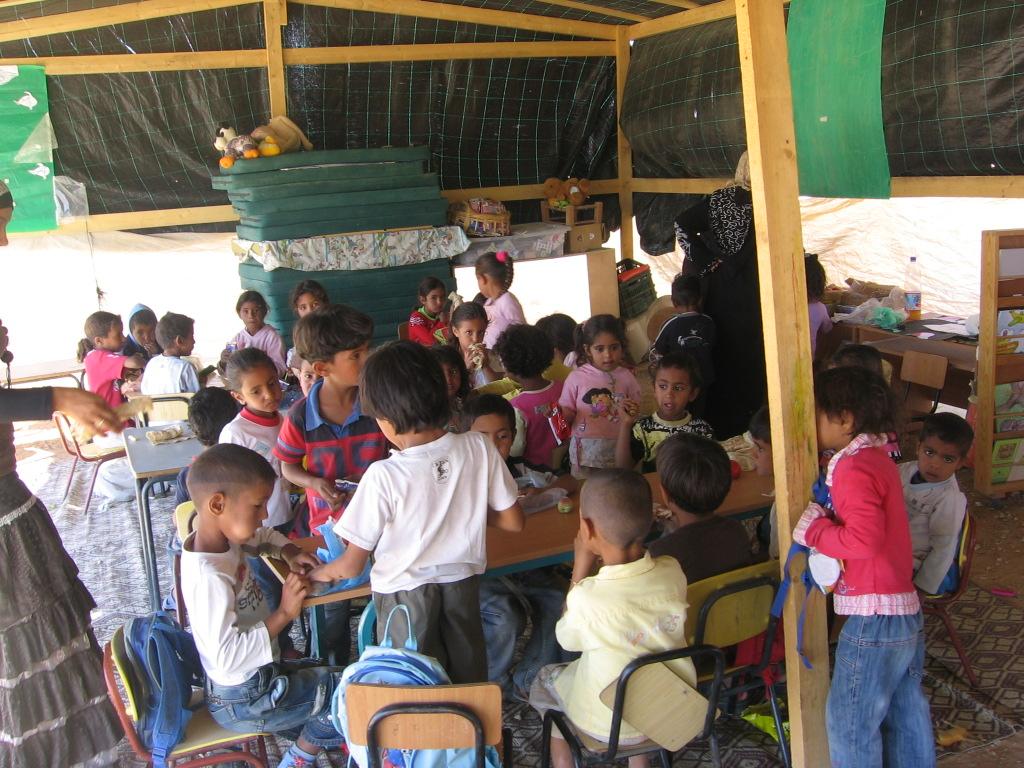In a May 16 ruling, the Beersheba District Court ordered the Ministry of Education and the Yeruham Local Council to establish a kindergarten in the unrecognized Bedouin village of Rahme before the start of the upcoming school year. The decision was made in response to a petition submitted by ACRI’s Yeruham civic action group and legal department, together with the head of the Rahme village committee and the NGO Commitment to Peace and Social Justice, as part of a joint struggle by Jewish residents of Yeruham and Bedouin residents of Rahme to advocate for the education rights of Rahme’s children. The petition stated that the lack of educational framework for children between the ages of three and six constitutes a violation of the children’s right to education and equality. It demanded that the Ministry of Education and the Yeruham Local Council honor their joint responsibility to establish a kindergarten for the children of Rahme close to their homes
Rahme is a community of some 1,000 residents and lies within the area of jurisdiction of the Yeruham Local Council yet it is an unrecognized village, and thus receives no services from the state – schools, paved roads, transportation, and other basic services. At present, Bedouin children between the ages of three and six – and even older – have no educational framework because of the lack of a kindergarten close to their homes. Following the submission of the petition,
the local authorities and government ministries acknowledged the lack of education facilities in Rahme and committed to opening a kindergarten in the fall 2009, yet despite the government’s pledge, the kindergarten has yet to be opened. For lack of a better solution, the residents of Rahme had set up a tin structure to serve as a temporary kindergarten there, but the authorities destroyed it.
In its ruling, the Court stated that the Ministry and Local Council violated the Compulsory Education Law because the alternative the authorities have proposed for these children-to attend the kindergarten in another village, 30 kilometers away-is not an adequate solution. The court also stated that if the authorities did not fulfil their obligations to provide adequate schooling facilities for children in Rahme between the ages of 3-4 and 5-6 within the allotted time frame, the petitioners could intervene before the court again.
In response to the breakthrough ruling, Odeh Zenon, Chairman of the Local Committee in Rahme and one of the petitioners explained, “For the past five years we have been trying to find an educational solution for the children of Rahme, who are growing up without a proper framework. Our negotiations with the authorities have resulted in nothing, and our children’s education has been neglected. This court ruling has finally reminded the Ministry of Education and the Yeruham Local Council that these children are also citizens, and that the Compulsory Education Law applies to them as well.”
ACRI Attorney Gil Gan-Mor, who represented the petitioners, said, “The Court ruled decisively today that the authorities cannot hold children hostage in the struggle over the unrecognized villages. The Goldberg Committee recommended that the State recognize the village of Rahme, but, regardless, the right of the children of Rahme to education and to an accessible kindergarten should not be dependent on the resolution of the greater problem of the unrecognized villages.”








